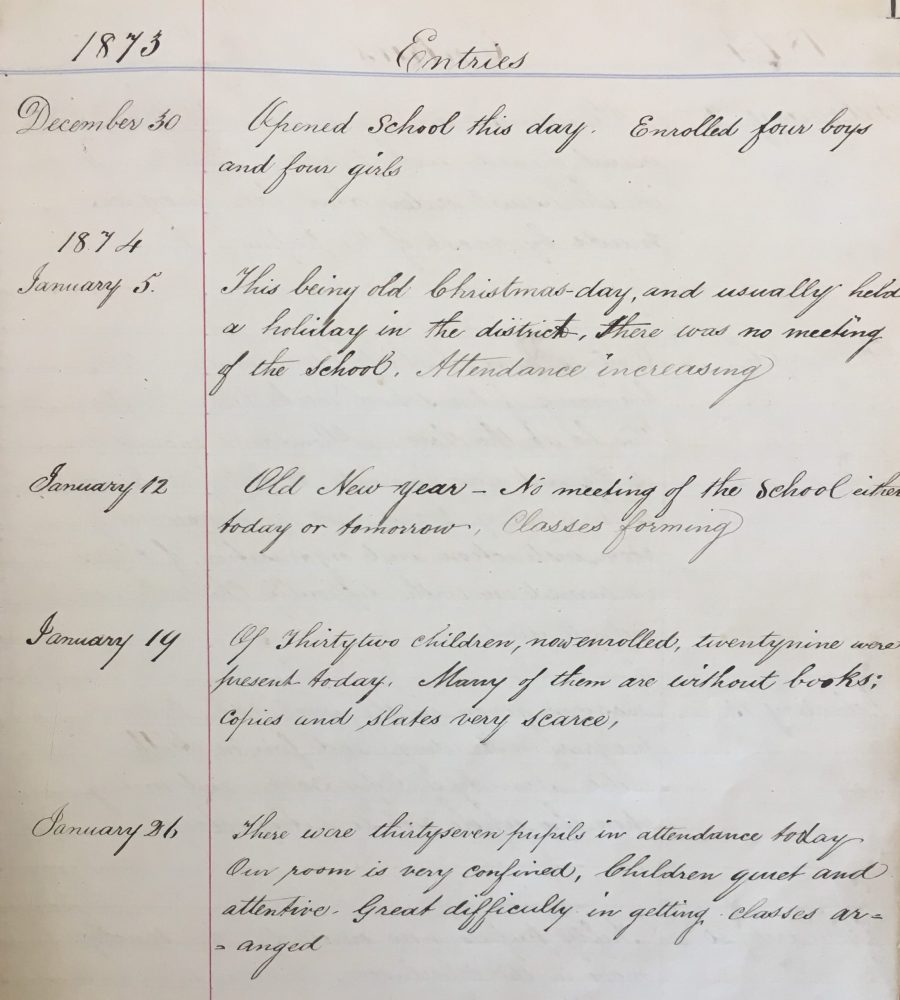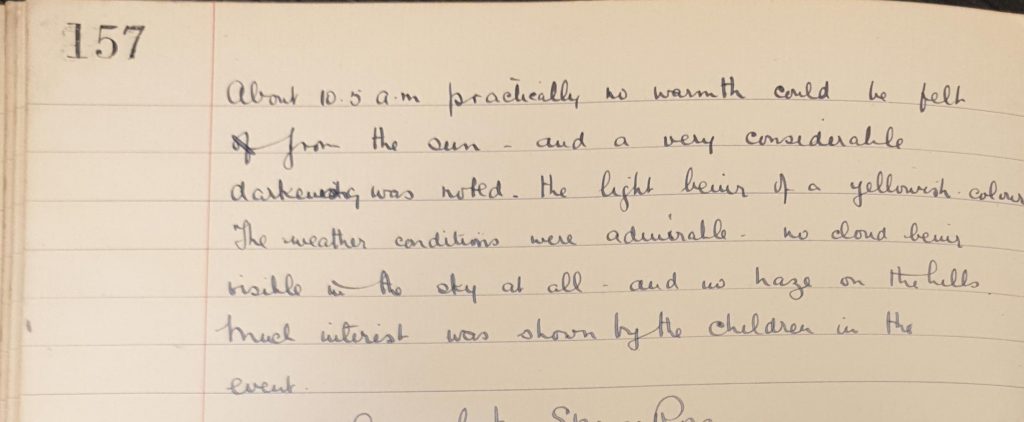The aim of compulsory school attendance brought in by the 1872 Education (Scotland) Act was not always entirely successful.
For much of our history the agricultural year has dictated the rhythms of rural life and school was no exception. Log books are full of references to pupils being absent to assist with tasks on the land – from cutting peat and gathering cranberries to planting turnips and lifting potatoes.
The latter was such a frequent occurrence across the country that in the 1930s the ‘tattie holidays’ (two weeks off around October) became official and both local pupils and those from further afield were drafted in to assist.
In this recording from www.amaile.org.uk Mrs EJ Newell remembers the tattie picking holidays.
Even the Christmas holidays so beloved by children today weren’t always the two weeks they are now. Many schools took no break on 25th December or 1st January, deciding instead to mark old Christmas (5th January) and old New Year (12th January) if anything.
Of course, in addition to Christmas, religion was central to the calendar year with many schools closing to mark local communion days, fast days and thanksgiving event, as well as days of more local significance such as prominent funerals and weddings.
Other important days and events that occurred throughout the year were marked in school, including the solar eclipse of 1921.
“The morning school was not really commenced until 10.45. A very fine eclipse of the sun was visible, and all were very interested in watching the travelling of the moon. Each was supplied with a smoked glass and from the wall adjoining the playground the view was very fine. None were able to see the starts which were supposed to be quite visible. About 10.5 a.m practically no warmth could be delt from the sun and a very considerable darkening was noted, the light being of a yellowish colour. The weather conditions were admirable, no cloud being visible in the sky at all, and no haze on the hills. Much interest was shown by the children at the event.”
Extract from Inverinate School log book, 8 April 1921.


